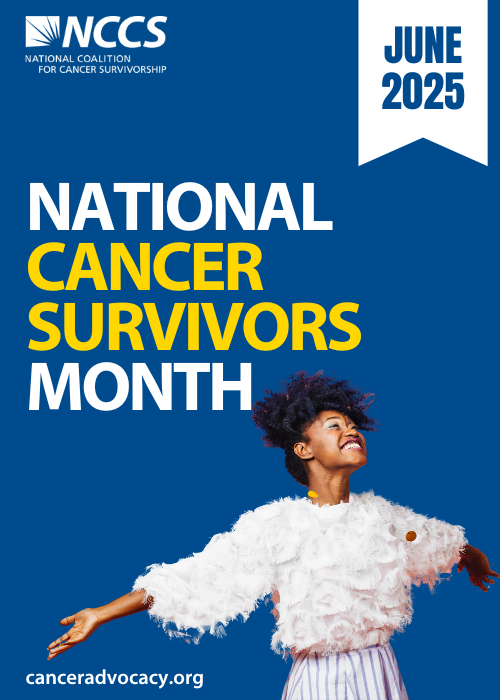Guest Post: Timing, Tools, Evaluation, and Documentation: Implementing Screening Programs for Psychosocial Distress
Guest Blog by Carole McCue, RN, MS, CNE
According to a recent study, 75 percent of cancer patients with depression are not treated. The integration of psychosocial care into the routine care of all patients with cancer is now being recognized as a new standard of care and the National Comprehensive Cancer Network, (NCCN) developed guidelines for distress management. The guidelines are intended to assist oncology teams in identifying psychosocial resources and giving guidance on interventions for patients with mild distress to ensure that all patients with distress are recognized and treated.
NCCN defines distress as “an emotionally unpleasant psychological, social and or spiritual experience that might interfere with a patient’s ability to effectively cope with cancer and its physical symptoms or treatment.” Research suggests that screening for and addressing distress enhances quality of life and improved cancer outcomes. In 2012, Carlson and others studied screening for distress in lung cancer patients and its effect on pain, fatigue, and common problems. The findings demonstrated that routine screening for distress, followed by personalized triage, resulted in the greatest benefit.
As of 2015, the American College of Surgeons Commission on Cancer Standards will require screening for psychosocial distress for patients with cancer. A joint position statement on implementation of screening for distress was approved by the American Psychosocial Oncology Society (APOS), Association of Oncology Social Work (AOSW), and The Oncology Nursing Society (ONS). Cancer centers will be required to implement screening programs for psychosocial distress as a new criterion for accreditation.
How to Implement?
- Standard: The Standard requires a comprehensive system involving an oncology team including a physician, nurse, and social worker and it would include: screening for distress, review of findings, follow-up assessments, and referral of appropriate patients for evaluation and support.
- Timing: Distress screening must occur during a “pivotal medical visit.” There is no current agreement as to the best timing.
- Tools: The questionnaire must screen for multiple symptoms or quality of life issues that may help identify the cause of the patient’s distress. Criteria for tool selection: The tool must be validated in cancer patients, available in multiple languages, and easy to use with diverse cultures.
- Evaluation/Referral: In order to be effective, a standardized protocol for scoring is recommended. The results must be reviewed to identify those patients who require further assessments and referral for evaluation if indicated in a timely manner.
- Documentation: The patient record must identify the tool used, results with clinical interpretation, and referral as indicated.
Distress frequently goes unrecognized, the new standard will help address unmet psychosocial needs and improve cancer care for the whole patient. In order to be effective, a team of all disciplines must be included to ensure that all cancer patients are screened, evaluated and treated appropriately.
Does your center have plans to implement a multidisciplinary program?
Have you seen an improvement in quality of life issues for our cancer patients? Please leave your comments. As members of the cancer care healthcare team, we must become politically active to advocate for policy changes that will cover such an important aspect of care for the cancer patient.
 About Carole McCue, RN, MS, CNE: Carole holds a full time faculty position at an Associate Degree RN program outside NYC. Ms. McCue has over forty years of nursing experience in various positions and has achieved national certification in her areas of specialty: Intensive care Nursing (CCRN), Performance Improvement (CPHQ) and Nursing Education (CNE).Carole has authored publications and presented her work at national conferences around the country. As a Chief Nursing Officer of an acute care facility, this RN was responsible for the management of all aspects of nursing services. While working in Staff Development, Carole started a support group for cancer patients as she recognized the need for education for both cancer patients and their families. Four years ago, Carole faced the biggest challenge of her life with a diagnosis of cancer. She has become an advocate for cancer patients by actively participating in an online Oncology nursing blog and striving for policy changes that will enhance the care of cancer patients. The views & opinions expressed in any guest post featured on our site are those of the guest author and do not necessarily reflect the opinions & views of the National Coalition for Cancer Survivorship. Read our blog and comment policies here.
About Carole McCue, RN, MS, CNE: Carole holds a full time faculty position at an Associate Degree RN program outside NYC. Ms. McCue has over forty years of nursing experience in various positions and has achieved national certification in her areas of specialty: Intensive care Nursing (CCRN), Performance Improvement (CPHQ) and Nursing Education (CNE).Carole has authored publications and presented her work at national conferences around the country. As a Chief Nursing Officer of an acute care facility, this RN was responsible for the management of all aspects of nursing services. While working in Staff Development, Carole started a support group for cancer patients as she recognized the need for education for both cancer patients and their families. Four years ago, Carole faced the biggest challenge of her life with a diagnosis of cancer. She has become an advocate for cancer patients by actively participating in an online Oncology nursing blog and striving for policy changes that will enhance the care of cancer patients. The views & opinions expressed in any guest post featured on our site are those of the guest author and do not necessarily reflect the opinions & views of the National Coalition for Cancer Survivorship. Read our blog and comment policies here.




